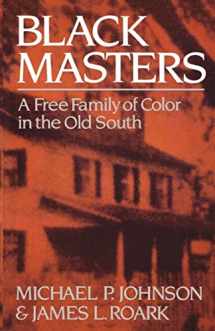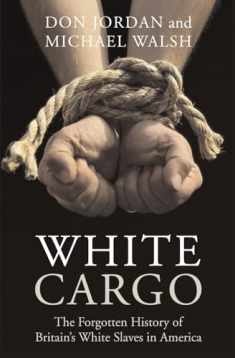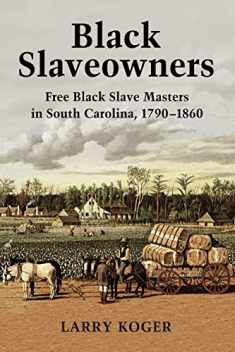
Black Masters: A Free Family of Color in the Old South
ISBN-13:
9780393303148
ISBN-10:
0393303144
Author:
James L. Roark, Michael P. Johnson
Publication date:
1986
Publisher:
W. W. Norton & Company
Format:
Paperback
440 pages
Category:
Civil War
,
United States History
,
State & Local
,
Americas History
FREE US shipping
Rent
35 days
Due Jul 07, 2024
35 days
from $19.01
USD
Book details
ISBN-13:
9780393303148
ISBN-10:
0393303144
Author:
James L. Roark, Michael P. Johnson
Publication date:
1986
Publisher:
W. W. Norton & Company
Format:
Paperback
440 pages
Category:
Civil War
,
United States History
,
State & Local
,
Americas History
Summary
Black Masters: A Free Family of Color in the Old South (ISBN-13: 9780393303148 and ISBN-10: 0393303144), written by authors
James L. Roark, Michael P. Johnson, was published by W. W. Norton & Company in 1986.
With an overall rating of 3.5 stars, it's a notable title among other
Civil War
(United States History, State & Local, Americas History) books. You can easily purchase or rent Black Masters: A Free Family of Color in the Old South (Paperback) from BooksRun,
along with many other new and used
Civil War
books
and textbooks.
And, if you're looking to sell your copy, our current buyback offer is $0.88.
Description
"A remarkably fine work of creative scholarship." ? C. Vann Woodward, New York Review of Books
In 1860, when four million African Americans were enslaved, a quarter-million others, including William Ellison, were "free people of color." But Ellison was remarkable. Born a slave, his experience spans the history of the South from George Washington and Thomas Jefferson to Robert E. Lee and Jefferson Davis. In a day when most Americans, black and white, worked the soil, barely scraping together a living, Ellison was a cotton-gin maker? a master craftsman. When nearly all free blacks were destitute, Ellison was wealthy and well-established. He owned a large plantation and more slaves than all but the richest white planters.While Ellison was exceptional in many respects, the story of his life sheds light on the collective experience of African Americans in the antebellum South to whom he remained bound by race. His family history emphasizes the fine line separating freedom from slavery.


We would LOVE it if you could help us and other readers by reviewing the book
Book review

Congratulations! We have received your book review.
{user}
{createdAt}
by {truncated_author}




